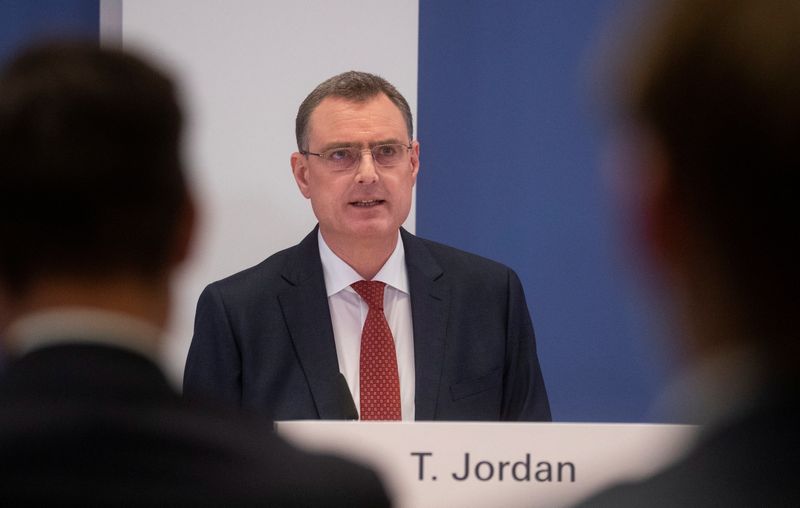Swiss National Bank ready for further steps to combat inflation-Jordan
2022.09.23 13:52
[ad_1]

The Swiss National Bank is ready to take further steps to fight inflation despite price rises in Switzerland being relatively modest compared to international peers, SNB Chairman Thomas Jordan said on Friday.
Swiss inflation reached 3.5% in August, its highest level in nearly 30 years, albeit much lower than the 9.1% level seen in the eurozone, 9.9% level in Britain and 8.3% rate in the United States.
The SNB responded on Thursday by hiking its policy rate to 0.5%, ending a near 8-year era of negative interest rates.
“Inflation in Switzerland is lower than abroad. However, in this country, too, it has still increased much more than was generally expected,” Jordan said in remarks prepared for an event in Lucerne.
“At 3.5%, it is at its highest level since the 1990s. It is considerably above the range the SNB equates with price stability, namely between 0% and 2% over the medium term.”
The central bank could raise rates again to combat inflation and ensure price stability, which Jordan saw as the SNB’s biggest priority.
“Ensuring price stability is a challenge and demands the full attention of the SNB,” Jordan said.
“It cannot be ruled out that further increases in the SNB policy rate will be necessary to ensure price stability over the
medium term,” he added, repeating his message from Thursday.
Economists expect the SNB to hike interest rates again in December and March 2023.
The central bank would also be active in the foreign exchange markets where necessary, Jordan said.
The SNB has said it would prevent a big fall in the value of the franc – whose strength has softened the impact of imported inflation.
Last year the SNB did not fight an appreciation of the safe-haven currency, which rose in value by 4% between autumn and spring 2002, making imports cheaper.
Further action may be needed because there was increasing signs that inflation was spreading to goods and services not affected so far by the war in Ukraine or pandemic bottlenecks, Jordan said.
[ad_2]
Source link







